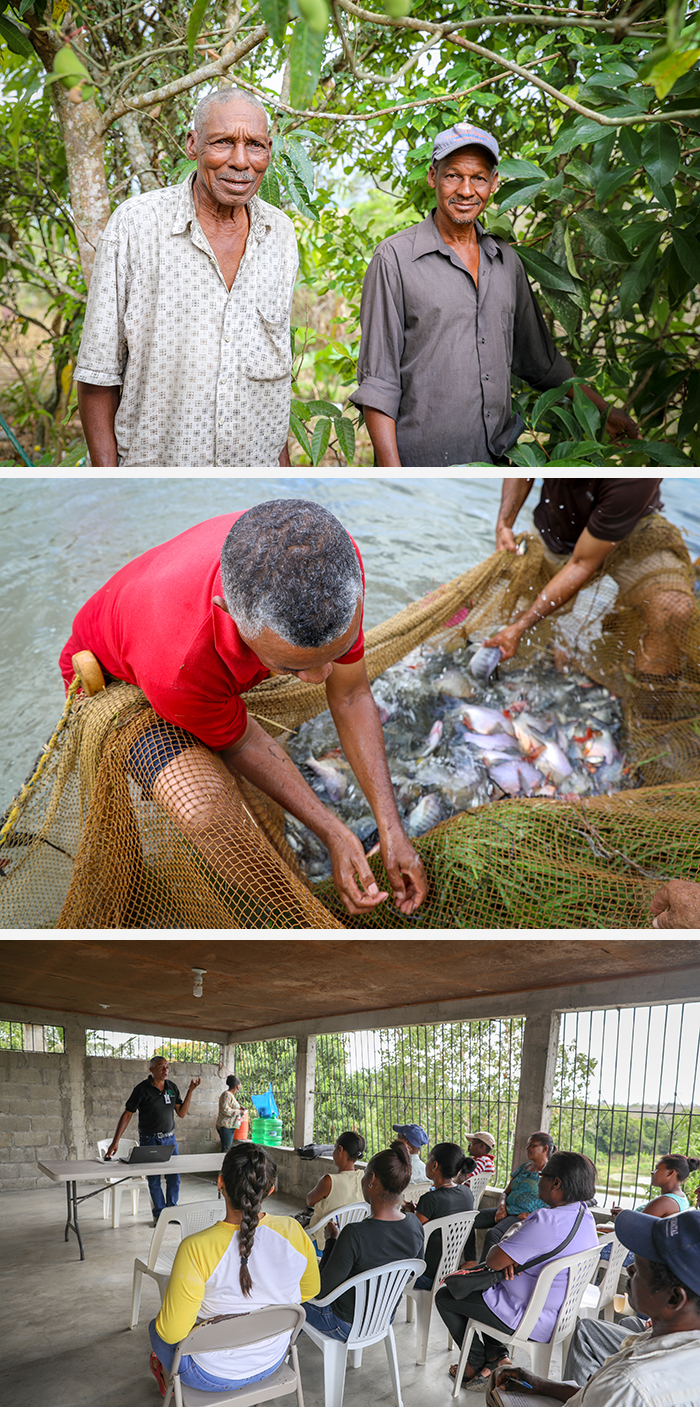Stories of Change

Top: Ismael Solis (right) and his father Gabriel. Middle and Bottom: the Fish Training Center in Dajabon, Dominican Republic.
Fishing for a Better Future
“This is one of the most important foods we can eat,” says Ismael Solis. But he and his neighbors aren’t eating enough. “Our health is not that good.”
He’s talking about fish, which are a good source of protein and nutrition for families. But many families can’t afford to buy fish at the high prices they fetch in many stores in the Dominican Republic, and fish consumption is particularly low in Dajabon, near where Ismael lives. To make matters worse, some of the other food sources his family has relied on are becoming less and less stable. Growing certain crops depends on soil quality and healthy climates, which are not guaranteed.
That’s where the Fish Training Center comes in. Our partner SSID runs the center with CWS funding. Families come from miles around to learn about fish farming at the center. Ismael lives about an hour and a half away. “I am participating in the course about growing fish because I’m very interested in producing fish,” he says. “We used to get them from the river, but now we can produce them to eat.”
A fish pond means a guaranteed supply of fish, which is more reliable than river fishing. That’s why SSID is helping families and communities start them. Within six months, families can eat the fish or sell them for extra income. They can generally earn about $1 per pound of fish, and a typical round of production is 60-70 pounds. It’s an activity that engages the whole family; children can help feed the fish alongside their parents. Plus, this is an easy skill for trained families to share with others. Neighbors will teach neighbors, helping pull the whole community’s economy up.
The fish training center’s impact goes beyond just the classes on growing fish. They have ponds teeming with fish, which they use to help the community. They sell fish to local families without inflating the prices, so that families can affordably purchase fish to eat. Plus, they release fish to repopulate nearby rivers and help families who rely on river fishing. The number of fish that they release depends on the types of fish at the center and demand from local fishermen, but it can be about 2,000 fish at once.
Ismael and his family have partnered with SSID since the 1990s, when he became a community leader focusing on health and nutrition. His father, 90-year-old Gabriel Solis, was the president of the agricultural association. “We are so thankful for SSID because they give us so much knowledge,” says Gabriel. “Whatever is in your hands to do, please help us,” Ismael adds. “We really need you. We love SSID.”
